AMD Zen 3 Ryzen Deep Dive Review: 5950X, 5900X, 5800X and 5600X Tested
by Dr. Ian Cutress on November 5, 2020 9:01 AM ESTCPU Tests: Synthetic
Most of the people in our industry have a love/hate relationship when it comes to synthetic tests. On the one hand, they’re often good for quick summaries of performance and are easy to use, but most of the time the tests aren’t related to any real software. Synthetic tests are often very good at burrowing down to a specific set of instructions and maximizing the performance out of those. Due to requests from a number of our readers, we have the following synthetic tests.
Linux OpenSSL Speed: SHA256
One of our readers reached out in early 2020 and stated that he was interested in looking at OpenSSL hashing rates in Linux. Luckily OpenSSL in Linux has a function called ‘speed’ that allows the user to determine how fast the system is for any given hashing algorithm, as well as signing and verifying messages.
OpenSSL offers a lot of algorithms to choose from, and based on a quick Twitter poll, we narrowed it down to the following:
- rsa2048 sign and rsa2048 verify
- sha256 at 8K block size
- md5 at 8K block size
For each of these tests, we run them in single thread and multithreaded mode. All the graphs are in our benchmark database, Bench, and we use the sha256 and md5 results in published reviews.
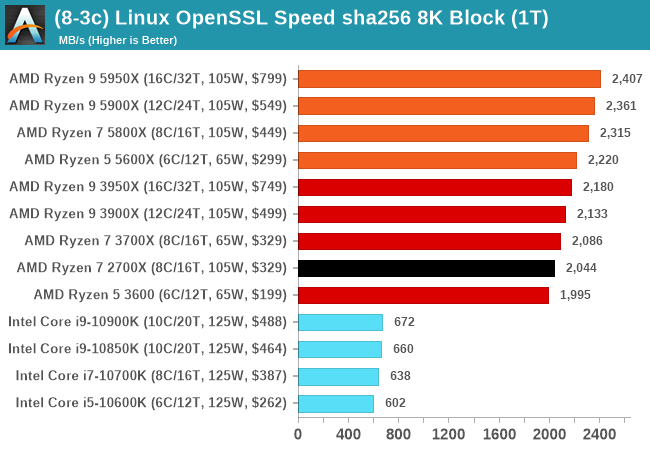
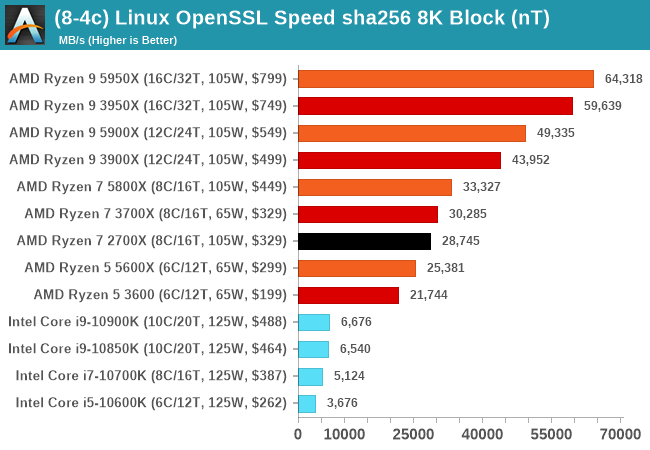
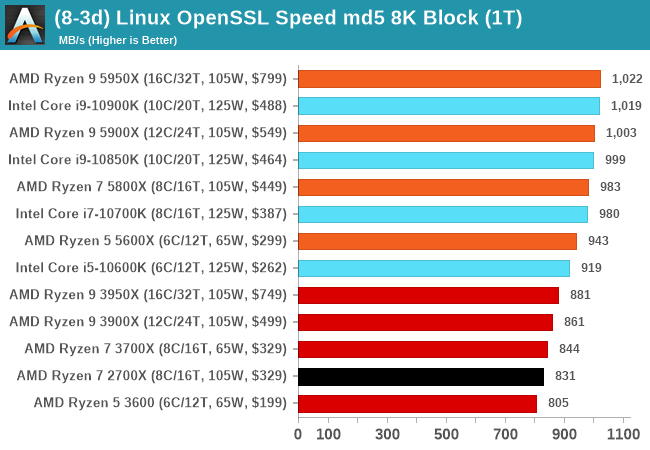
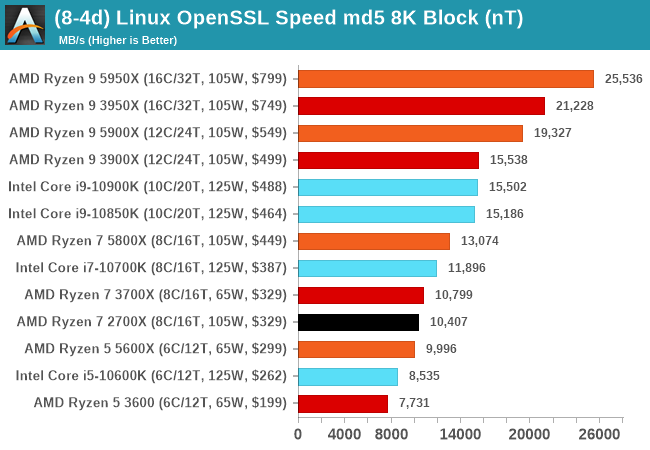
GeekBench 5: Link
As a common tool for cross-platform testing between mobile, PC, and Mac, GeekBench is an ultimate exercise in synthetic testing across a range of algorithms looking for peak throughput. Tests include encryption, compression, fast Fourier transform, memory operations, n-body physics, matrix operations, histogram manipulation, and HTML parsing.
I’m including this test due to popular demand, although the results do come across as overly synthetic, and a lot of users often put a lot of weight behind the test due to the fact that it is compiled across different platforms (although with different compilers).
We have both GB5 and GB4 results in our benchmark database. GB5 was introduced to our test suite after already having tested ~25 CPUs, and so the results are a little sporadic by comparison. These spots will be filled in when we retest any of the CPUs.
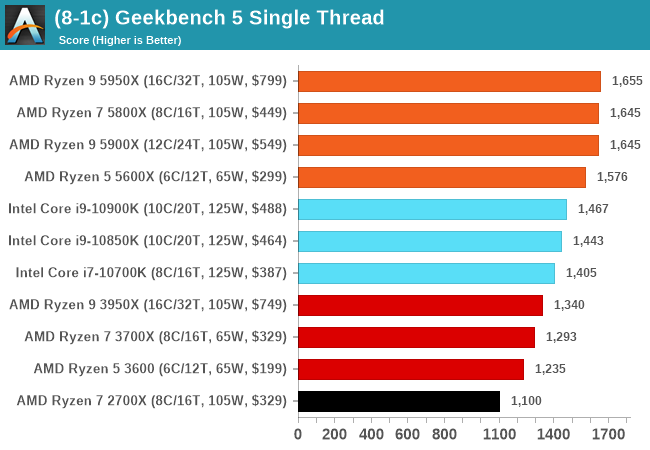
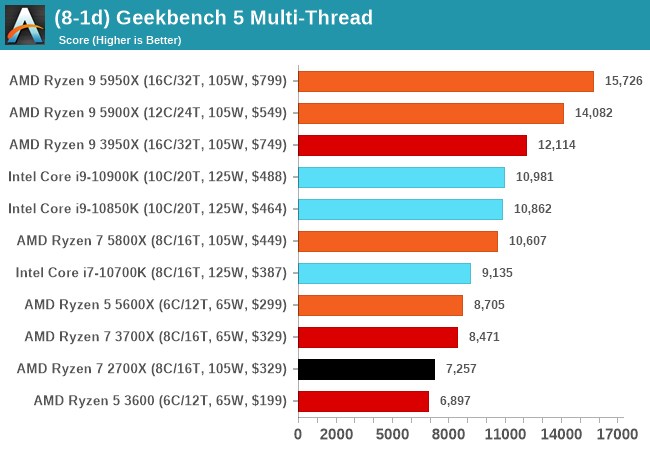










339 Comments
View All Comments
Andrew LB - Sunday, December 13, 2020 - link
5800x @ 3.6-4.7ghz draws 219w and hits 82'c and locked at 4.7ghz its 231w and 88'c.Thats hotter than my i7-10700k @ 5.1ghz all core locked.
https://www.kitguru.net/wp-content/uploads/2020/11...
Thunder 57 - Monday, April 26, 2021 - link
This comment didn't age well...AndyMclamb - Tuesday, September 28, 2021 - link
Rip AMD oner year later Intel destroys AMD with Alder Lakejeremyshaw - Thursday, November 5, 2020 - link
Yes! All I wanted to see was on the Cache and Latency parts - the unified cache allows 6 core and 12 core setups without the penalties of having partial CCXs!JfromImaginstuff - Thursday, November 5, 2020 - link
Wow, just wow,Intel, hang in there you'll get there eventually
PandaBear - Friday, November 6, 2020 - link
In 2023 maybe.Spunjji - Monday, November 9, 2020 - link
It could be as soon as 2022 that they become properly competitive on power and performance, depending on how TSMC 5nm and Zen 4 shake out for AMD.Rocket Lake ought to at least given them presence in mid-range gaming, if you can stomach the power...
5j3rul3 - Thursday, November 5, 2020 - link
No Microsoft Filght Simulator 2020 Test?5j3rul3 - Thursday, November 5, 2020 - link
MFS 2020 is the great to test CPU performance in gamegagegfg - Thursday, November 5, 2020 - link
https://www.anandtech.com/show/16214/amd-zen-3-ryz...